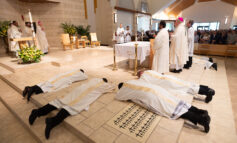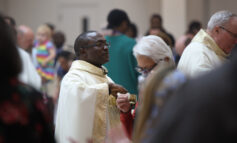By Father Roch Kereszty
Special to The Texas Catholic
As I was thinking about concrete cases in which young adults’ faith is challenged in their professional lives, it occurred to me: why not ask the young adults themselves, my former students?
After they received my request, many long stories, some of them quite dramatic, kept pouring into my computer. Some of these young men were obviously eager to tell their struggles about acting in accord with their conscience.
Here is one, short enough to fit into a column, from the owner of a middle-size company. Let us call him “Bill”:
“Many times in my professional career, I have been asked to do things that basically went against my conscience. I have been asked by good customers to provide receipts that stated a cost above what the customer paid for services so that they could present that to their clients for payment. I have been asked to produce receipts for which a transaction never existed. I have been in situations where I could have profited from selling someone something that they didn’t really need just to make a sale. I have been asked to give false information in testimony to a customer’s client to defend the customer’s unethical actions. I’m certain that there were even more times which don’t come to mind when I had been either asked or tempted to lie, cheat or steal in business.
“This will present itself in business and perhaps present itself to a larger degree the more responsibility that the person has. Just look at the not too distant greed that has corrupted both the real estate markets and the banking industry/stock market. These temptations become even more difficult when facing the strong possibility that standing up for honesty and integrity may cause you to lose a customer whom you may have to disappoint for not going along with his request, you may lose the possibility of advancement with an unscrupulous supervisor, or perhaps incurring monetary loss to your company by doing the right thing.
“My only advice is that moral integrity is one thing that no one can forcibly take from you. Ultimately people will respect you for doing what is just, and if they don’t, you probably don’t want to be associated with them in a business relationship anyway. If one can stand in front of the mirror, look into the mirror at the person standing there, and say to that person that he did the right thing, then it’s all good. If it is not the right thing then it gets difficult to look at that person in the mirror because you can’t lie to yourself very easily…with a well-formed conscience anyway.”
Bill does not mention but I know that behind the “well-formed conscience” stands a well-informed Christian faith, simple, unpretentious but strong enough to shape his life and influence his children, his employees and his customers. In our society and perhaps in every society the good people are less visible than the bad. Yet, as Christ said: “You are the salt of the earth” (Mt 5:13): his disciples keep society from complete corruption and preserve its humanity, unless, of course, they themselves become corrupted. People like Bill give us hope that when the son of man returns he will find faith on the earth (cf. Lk 18:8).
Father Roch Kereszty, O.Cist., is a theologian and monk at the Cistercian Abbey of Our Lady of Dallas in Irving. His column will appear occasionally in The Texas Catholic.



